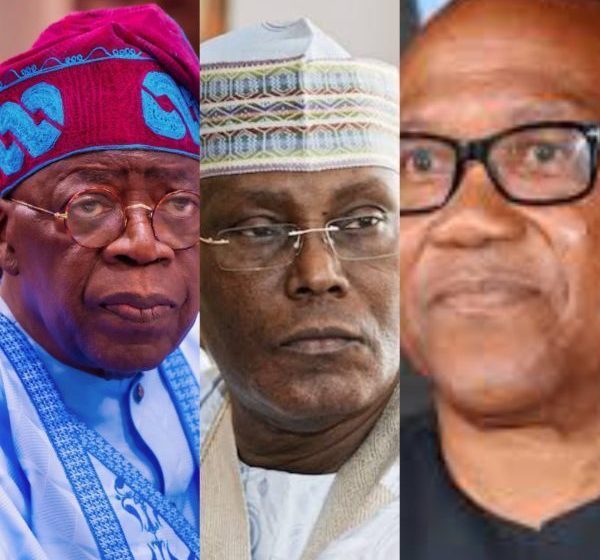David Mark, Obi, Atiku, El-Rufai — meet members of ADC’s new coalition against Tinubu
- Top Stories
crispng
- July 2, 2025
- 581

ADC’s 2027 Coalition: Bold Move or Broken Alliance in the Making?
In what is shaping up to be a political game-changer, the African Democratic Congress (ADC) has emerged as the rallying point for a newly formed coalition of high-profile Nigerian politicians from across party lines.
This move is seen as a calculated attempt to build a credible alternative to the ruling All Progressives Congress (APC) ahead of the 2027 general elections.
The ADC, traditionally a fringe party, is now undergoing a dramatic transformation, buoyed by defections, alignments, and endorsements from seasoned political gladiators who believe the time has come for a third force to take center stage.
David Mark Leads ADC’s New Political Alliance
Former Senate President David Mark has been appointed as the Interim National Chairman of the ADC. With over four decades of service to Nigeria—as a military officer, former Minister of Communications, and Nigeria’s longest-serving Senate President—David Mark is seen as a symbol of political stability and institutional knowledge.
His emergence is widely viewed as a strategic decision by the coalition to attract broad national support and lend credibility to ADC’s repositioning. Mark is expected to provide high-level coordination for the coalition as it prepares to challenge the dominance of the APC and the traditional political structure.
Aregbesola Brings Ideological Depth to the ADC Coalition
Former Osun State Governor and ex-Minister of Interior, Rauf Aregbesola, has been named the Interim National Secretary of the ADC. Aregbesola, a well-known progressive and policy advocate, has emphasized the need to build the ADC into a disciplined, ideology-driven institution.
He has openly stated that the coalition is studying successful political models from countries like South Africa and Kenya to craft a strategic and sustainable path for the ADC. His inclusion in the leadership underscores the coalition’s desire for intellectual rigour and structural reform, not just electoral success.
Bolaji Abdullahi to Shape ADC’s Public Engagement
Also joining the interim leadership of the ADC is Bolaji Abdullahi, former Minister of Sports and ex-APC spokesperson, who now serves as the Interim National Publicity Secretary.
With his deep understanding of political communication and public relations, Abdullahi is tasked with shaping the coalition’s media strategy, controlling the narrative, and ensuring that the coalition’s message resonates with Nigerians across the country.
His presence reinforces the belief that the ADC coalition is not just about winning elections, but about presenting a compelling and coherent political alternative.
Heavyweights Backing the ADC Coalition
The unveiling of the ADC’s new leadership in Abuja drew a politically diverse group of Nigeria’s most influential figures. Among them were former Vice President and PDP presidential candidate Atiku Abubakar, Labour Party’s Peter Obi, former Kaduna State Governor Nasir el-Rufai, and ex-Transport Minister Rotimi Amaechi.
Also present were influential legislators such as Senator Dino Melaye, Senator Gabriel Suswam, Senator Ireti Kingibe, and former Deputy Speaker Emeka Ihedioha. Their collective presence signals a serious commitment to building a strong opposition platform under the ADC banner.
This level of cross-party participation suggests that the ADC is becoming a credible unifying force for politicians disenchanted with their former platforms.
READ ALSO
Who is David Mark? ADC’s interim chairman leading coalition against Tinubu
Why Nigerians should reject ADC coalition, support Tinubu for second term – Omokri
Opposition coalition adopts ADC for 2027 elections….what you need to know
ADC’s Grassroots Strategy and State Mobilization
Beyond Abuja, the ADC has initiated a nationwide “State Convergence” campaign to solidify grassroots support. The initiative, led by the party’s state chapters, has seen engagement with political stakeholders, civil society, youth groups, and religious leaders across all 36 states.
ADC state chairmen have unanimously backed the coalition’s reformation and leadership changes, committing to harmonize existing party structures with new entrants. This grassroots mobilization is crucial for converting elite political endorsements into actual voter support ahead of the 2027 elections.
Why the ADC Coalition Matters Now
The ADC coalition is seen as a rare unification of Nigeria’s fragmented opposition. Unlike past attempts at building third forces, this coalition combines name recognition, political experience, and widespread geographic representation.
It signals the beginning of a serious effort to present Nigerians with a viable alternative to the APC and PDP. Moreover, the leadership structure suggests that this coalition is not built around a single personality, but around a shared vision for rebuilding Nigeria’s democratic and governance architecture.
Challenges Facing ADC’s New Coalition
Despite the momentum, the ADC coalition faces several hurdles. One major challenge will be internal cohesion—balancing the interests of various political blocs while maintaining a common vision. Additionally, David Mark and other leaders must work hard to earn the trust of traditional ADC members who may fear marginalization.
There’s also the need to clarify leadership succession plans and candidate selection processes to avoid power struggles as the 2027 elections approach. Lastly, the ruling APC may use federal might to destabilize or discredit the coalition’s activities at both national and state levels.
The Road to 2027: ADC’s Big Test
The ADC’s transformation into the headquarters of a major opposition coalition is both bold and unprecedented in recent political history.
With David Mark, Rauf Aregbesola, and Bolaji Abdullahi leading the charge—and with political giants like Atiku, Obi, El-Rufai, and Amaechi lending their weight—the party appears poised to shape Nigeria’s political discourse in the coming months. However, the coalition must prove that it can maintain unity, deliver on policy, and engage voters at every level.
Whether the ADC can rise above internal contradictions and become a legitimate contender in 2027 depends on how well this coalition is managed. But for now, a new chapter is unfolding in Nigerian politics—and it is being written under the name ADC.

